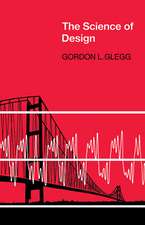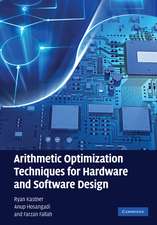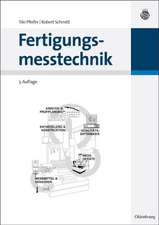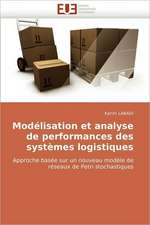Rocket Propulsion: Cambridge Aerospace Series, cartea 47
Autor Stephen D. Heister, William E. Anderson, Timothée L. Pourpoint, R. Joseph Cassadyen Limba Engleză Hardback – 6 feb 2019
Din seria Cambridge Aerospace Series
- 9%
 Preț: 634.77 lei
Preț: 634.77 lei - 11%
 Preț: 596.58 lei
Preț: 596.58 lei - 9%
 Preț: 706.85 lei
Preț: 706.85 lei - 11%
 Preț: 660.66 lei
Preț: 660.66 lei - 23%
 Preț: 623.30 lei
Preț: 623.30 lei - 11%
 Preț: 746.46 lei
Preț: 746.46 lei - 8%
 Preț: 403.07 lei
Preț: 403.07 lei -
 Preț: 451.88 lei
Preț: 451.88 lei -
 Preț: 472.89 lei
Preț: 472.89 lei - 11%
 Preț: 714.72 lei
Preț: 714.72 lei - 11%
 Preț: 510.72 lei
Preț: 510.72 lei - 11%
 Preț: 669.32 lei
Preț: 669.32 lei - 14%
 Preț: 1061.16 lei
Preț: 1061.16 lei -
 Preț: 414.94 lei
Preț: 414.94 lei - 11%
 Preț: 587.70 lei
Preț: 587.70 lei - 11%
 Preț: 576.56 lei
Preț: 576.56 lei - 14%
 Preț: 821.66 lei
Preț: 821.66 lei - 11%
 Preț: 563.13 lei
Preț: 563.13 lei - 11%
 Preț: 457.65 lei
Preț: 457.65 lei -
 Preț: 314.61 lei
Preț: 314.61 lei - 11%
 Preț: 487.24 lei
Preț: 487.24 lei - 14%
 Preț: 722.06 lei
Preț: 722.06 lei -
 Preț: 391.19 lei
Preț: 391.19 lei -
 Preț: 422.76 lei
Preț: 422.76 lei -
 Preț: 457.97 lei
Preț: 457.97 lei -
 Preț: 446.33 lei
Preț: 446.33 lei - 14%
 Preț: 895.37 lei
Preț: 895.37 lei -
 Preț: 323.05 lei
Preț: 323.05 lei - 11%
 Preț: 573.13 lei
Preț: 573.13 lei - 14%
 Preț: 874.48 lei
Preț: 874.48 lei -
 Preț: 435.36 lei
Preț: 435.36 lei - 11%
 Preț: 533.63 lei
Preț: 533.63 lei - 14%
 Preț: 791.00 lei
Preț: 791.00 lei - 14%
 Preț: 1070.29 lei
Preț: 1070.29 lei - 14%
 Preț: 1149.92 lei
Preț: 1149.92 lei - 14%
 Preț: 897.32 lei
Preț: 897.32 lei
Preț: 497.00 lei
Preț vechi: 558.42 lei
-11% Nou
Puncte Express: 746
Preț estimativ în valută:
95.10€ • 99.56$ • 78.69£
95.10€ • 99.56$ • 78.69£
Carte tipărită la comandă
Livrare economică 05-19 aprilie
Preluare comenzi: 021 569.72.76
Specificații
ISBN-13: 9781108422277
ISBN-10: 1108422276
Pagini: 586
Ilustrații: 317 b/w illus. 45 tables 270 exercises
Dimensiuni: 183 x 260 x 30 mm
Greutate: 1.36 kg
Editura: Cambridge University Press
Colecția Cambridge University Press
Seria Cambridge Aerospace Series
Locul publicării:New York, United States
ISBN-10: 1108422276
Pagini: 586
Ilustrații: 317 b/w illus. 45 tables 270 exercises
Dimensiuni: 183 x 260 x 30 mm
Greutate: 1.36 kg
Editura: Cambridge University Press
Colecția Cambridge University Press
Seria Cambridge Aerospace Series
Locul publicării:New York, United States
Cuprins
1. Classification of rocket propulsion systems and historical perspective; 2. Mission analysis fundamentals; 3. Trajectory analysis and rocket design; 4. Ideal rocket nozzle performance; 5. Combustion and thermochemistry; 6. Heat transfer; 7. Solid rocket motors (SRMs); 8. Liquid rocket engines (LREs); 9. Liquid rocket propellants; 10. Turbomachinery fundamentals; 11. Hybrid rocket engines (HREs); 12. Combustion instability; 13. Electric propulsion fundamentals.
Recenzii
'This text is destined to be a classic in modern rocket propulsion systems. It is an outstanding comprehensive volume that is very well suited for seniors or early graduate students in aerospace engineering. The technical background and analyses are nicely complemented by historical perspectives and a terrific array of challenging technical problems within each chapter.' Ann Karagozian, University of California, Los Angeles
'This text provides a complete description of rocket propulsion with tools and techniques provided to support vehicle conceptual design and detailed component design. Liquid engines and solid rocket motors are given equal attention. This well-written book provides a wonderful explanation of rocket propulsion fundamentals and a great set of homework problems.' Dean Misterek, Blue Origin, LLC
'This book begins with an entertaining historical background of rocketry and covers the basic theories and principles of rocket science as well as complete, up-to-date information on the rocket industry, including electric propulsion. Homework problems, meticulously designed by the authors who have a few decades of academic and industrial experience, are enriching, practical, and insightful for both students and field engineers.' Sam Yoon, Korea University
'The authors deliver a welcome and much needed addition to the limited collection of textbooks on rocket propulsion. Its detailed coverage of combustion and thermochemistry is particularly well done and noteworthy - a topic whose details are too often glossed over in other propulsion texts. Written in a clear and approachable style, and offering numerous homework problems, this text is an excellent choice for a senior undergraduate or graduate course in rocket propulsion.' Darren Hitt, University of Vermont
'Rocket Propulsion is an extremely useful addition to the limited textbook resources available in this area. It is written to a very high standard and covers all of the major technological areas and disciplines relevant to the field. It also includes a large number of worked examples and supplementary 'homework' problems. The book is highly recommended for undergraduate and postgraduate study and also for anyone else working in the field in industry or academia.' Derek Bray, Cranfield University
'In Rocket Propulsion, a timely textbook for graduate students, the experience of authors, educators yet linked to industry, is a treasure not to be missed. I find a special care to guide students to understanding rather than just learning and a unique wealth of homework problems, making this book the perfect resource for my graduate students.' Francesco Nasuti, Sapienza Università di Roma
'… an introduction to rocket engineering carefully structured for both graduate students and researchers to be able to easily access the basic knowledge of rocket systems. The most important feature of this book is the abundance of homework problems in each chapter … This book also contains very useful information on chemical rocket systems such as liquid rocket engines, solid rocket motors, and hybrid rockets, which have attracted much attention in the 2000s. Also it introduces the electric propulsion rocket that is becoming a new space propulsion system for satellites. Particularly Chapter 12 provides a basic introduction to the complexity of combustion instability in conventional chemical propulsion systems and will serve as a primer for researchers working on related topics.' Changjin Lee, Konkuk University, Seoul
'Rocket Propulsion is an expertly organized and presented curriculum textbook and guide for senior and first year graduate students looking to gain a thorough understanding of the topic along with practical tools that can be applied in industry. While very highly recommended for college and university library collections, it should be noted for students, academia, and non-specialist general readers with an interest in the subject that Rocket Propulsion is also available in a digital book format.' Carl Logan, Midwest Book Review
'This text fills a void in the aerospace community for a comprehensive, up-to-date text to educate the next generation of rocket propulsion engineers. Some of these engineers will support NASA and the military's efforts to design and build new large launch vehicle and missile systems, while others will support the ever-growing number of new launch vehicle start-ups formed to develop low-cost launch options to serve the growing small satellite community. These new rocket propulsion engineers will be required to work on a broad range of complex problems for which a solid understanding of rocket propulsion fundamentals will be a key to their success. This book, in contrast to the few other available options, provides a complete treatment of rocket propulsion system fundamentals ranging from basic vehicle sizing to details on propulsion subsystem design. Many real-world examples and well-designed homework problems are provided in each chapter.' Dean Misterek, AIAA Journal
'Rocket Propulsion provides a comprehensive coverage of the core aspect of chemical (solid and liquid) rocket motor design. [It] makes good use of relevant examples and case studies which help to ground much of the theoretical analyses presented … this is a very good senior undergraduate or postgraduate level textbook covering key aspects of rocket propulsion with a focus on thermochemical rocket motor design.' Dr Katharine Smith, University of Manchester
'This text provides a complete description of rocket propulsion with tools and techniques provided to support vehicle conceptual design and detailed component design. Liquid engines and solid rocket motors are given equal attention. This well-written book provides a wonderful explanation of rocket propulsion fundamentals and a great set of homework problems.' Dean Misterek, Blue Origin, LLC
'This book begins with an entertaining historical background of rocketry and covers the basic theories and principles of rocket science as well as complete, up-to-date information on the rocket industry, including electric propulsion. Homework problems, meticulously designed by the authors who have a few decades of academic and industrial experience, are enriching, practical, and insightful for both students and field engineers.' Sam Yoon, Korea University
'The authors deliver a welcome and much needed addition to the limited collection of textbooks on rocket propulsion. Its detailed coverage of combustion and thermochemistry is particularly well done and noteworthy - a topic whose details are too often glossed over in other propulsion texts. Written in a clear and approachable style, and offering numerous homework problems, this text is an excellent choice for a senior undergraduate or graduate course in rocket propulsion.' Darren Hitt, University of Vermont
'Rocket Propulsion is an extremely useful addition to the limited textbook resources available in this area. It is written to a very high standard and covers all of the major technological areas and disciplines relevant to the field. It also includes a large number of worked examples and supplementary 'homework' problems. The book is highly recommended for undergraduate and postgraduate study and also for anyone else working in the field in industry or academia.' Derek Bray, Cranfield University
'In Rocket Propulsion, a timely textbook for graduate students, the experience of authors, educators yet linked to industry, is a treasure not to be missed. I find a special care to guide students to understanding rather than just learning and a unique wealth of homework problems, making this book the perfect resource for my graduate students.' Francesco Nasuti, Sapienza Università di Roma
'… an introduction to rocket engineering carefully structured for both graduate students and researchers to be able to easily access the basic knowledge of rocket systems. The most important feature of this book is the abundance of homework problems in each chapter … This book also contains very useful information on chemical rocket systems such as liquid rocket engines, solid rocket motors, and hybrid rockets, which have attracted much attention in the 2000s. Also it introduces the electric propulsion rocket that is becoming a new space propulsion system for satellites. Particularly Chapter 12 provides a basic introduction to the complexity of combustion instability in conventional chemical propulsion systems and will serve as a primer for researchers working on related topics.' Changjin Lee, Konkuk University, Seoul
'Rocket Propulsion is an expertly organized and presented curriculum textbook and guide for senior and first year graduate students looking to gain a thorough understanding of the topic along with practical tools that can be applied in industry. While very highly recommended for college and university library collections, it should be noted for students, academia, and non-specialist general readers with an interest in the subject that Rocket Propulsion is also available in a digital book format.' Carl Logan, Midwest Book Review
'This text fills a void in the aerospace community for a comprehensive, up-to-date text to educate the next generation of rocket propulsion engineers. Some of these engineers will support NASA and the military's efforts to design and build new large launch vehicle and missile systems, while others will support the ever-growing number of new launch vehicle start-ups formed to develop low-cost launch options to serve the growing small satellite community. These new rocket propulsion engineers will be required to work on a broad range of complex problems for which a solid understanding of rocket propulsion fundamentals will be a key to their success. This book, in contrast to the few other available options, provides a complete treatment of rocket propulsion system fundamentals ranging from basic vehicle sizing to details on propulsion subsystem design. Many real-world examples and well-designed homework problems are provided in each chapter.' Dean Misterek, AIAA Journal
'Rocket Propulsion provides a comprehensive coverage of the core aspect of chemical (solid and liquid) rocket motor design. [It] makes good use of relevant examples and case studies which help to ground much of the theoretical analyses presented … this is a very good senior undergraduate or postgraduate level textbook covering key aspects of rocket propulsion with a focus on thermochemical rocket motor design.' Dr Katharine Smith, University of Manchester
Notă biografică
Descriere
Equips students with an up-to-date practical knowledge of rocket propulsion, numerous homework problems, and online self-study materials.




























